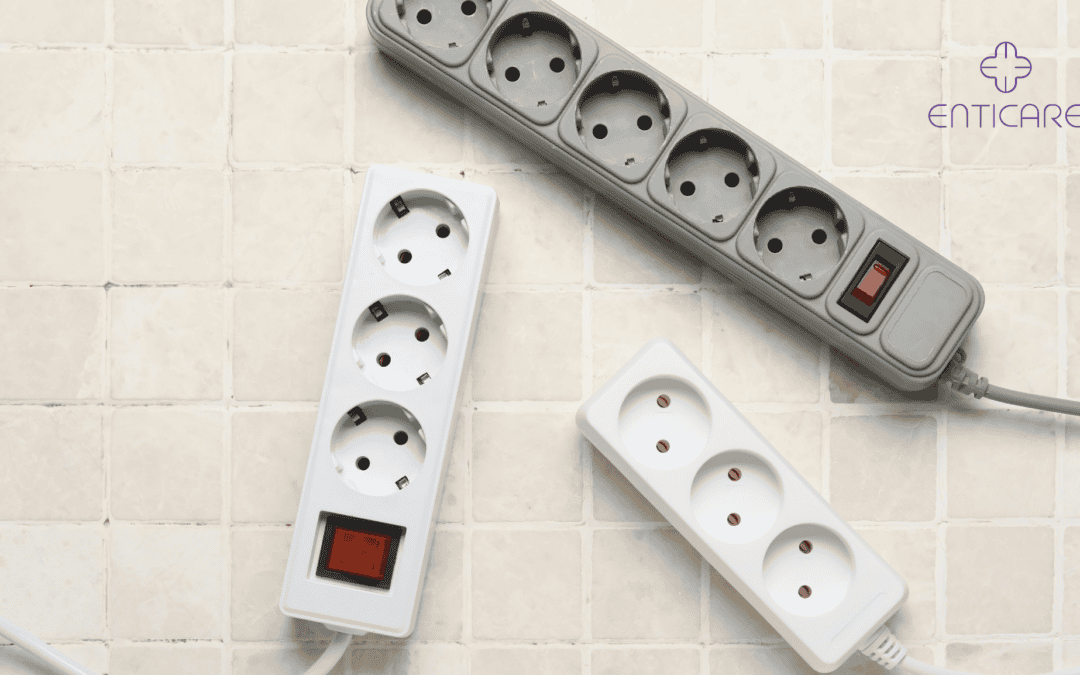When using a CPAP (Continuous Positive Airway Pressure) machine for treating sleep apnea, you might wonder whether it’s safe to use an extension cord with your device. This question is essential for ensuring both the safety and effectiveness of your therapy. In this blog, we’ll explore the implications of using an extension cord with your CPAP machine, address potential risks, and provide guidance on best practices.
Understanding CPAP Machines and Power Requirements
What is a CPAP Machine?
A CPAP machine helps individuals with obstructive sleep apnea by delivering a continuous flow of air through a mask to keep the airway open during sleep. The device typically connects to a standard electrical outlet to power the motor, humidifier, and other components. CPAP masks are a critical component of CPAP therapy, and finding the right mask size and style is essential for individual comfort. Different types of masks, such as full face masks and nasal pillows, are available to suit various needs and preferences.
Power Specifications of CPAP Devices
CPAP machines are designed to operate within specific power parameters. Most machines require a stable power supply with a voltage and current rating that matches the manufacturer’s specifications. Using an extension cord can sometimes affect the power delivery to the device.
Risks of Using Extension Cords
Extension cords can introduce risks such as voltage drops, interference, and potential electrical hazards. If the extension cord is not properly rated or used, it could impact the CPAP machine’s performance or cause safety issues.
Evaluating the Safety of Extension Cords
Choosing the Right Extension Cord
When using an extension cord with your CPAP machine, it’s crucial to select one that matches the power requirements of the device. Use a cord that can handle the voltage and current ratings specified in your CPAP machine’s manual. Ensure the cord is heavy-duty and has adequate insulation to prevent overheating.
Avoiding Overloaded Circuits
An extension cord should not overload the circuit it is connected to. Check the total load on the circuit, including other devices plugged into the same outlet, to ensure it does not exceed the cord’s or circuit’s capacity.
Inspecting for Damage
Before connecting your CPAP machine to an extension cord, inspect both the cord and the machine’s power plug for any signs of damage. Frayed wires, cracked insulation, or loose connections can pose serious safety risks.
Ensuring Proper Use of Extension Cords
Keeping the Cord in Good Condition
Ensure that the extension cord remains in good condition throughout its use. Avoid kinks, twists, or excessive bending, which can damage the cord and reduce its effectiveness.
Avoiding Tripping Hazards
Position the extension cord where it does not create a tripping hazard. Secure it properly to prevent accidents and ensure that the cord does not get damaged or pulled accidentally.
Using Surge Protectors
Consider using a surge protector with your extension cord to safeguard your CPAP machine from power surges and voltage fluctuations. A surge protector can help protect your device from potential electrical issues.
Alternatives to Using Extension Cords
Installing Additional Outlets
If you frequently need to use an extension cord, it might be worth considering installing additional electrical outlets in your bedroom or wherever you use your CPAP machine. This approach can provide a more permanent and safer solution.
Using a Battery Backup
Another alternative is using a battery backup system designed for CPAP machines. These systems provide a reliable power source in case of electrical outages and can be a safer option than using an extension cord.
Relocating the CPAP Machine
If possible, relocate your CPAP machine closer to a power outlet to avoid the need for an extension cord. This adjustment can simplify your setup and reduce potential risks.
Conclusion: Prioritize Safety and Consult a Professional
Using an extension cord with your CPAP machine can be a practical solution in some cases, but it comes with risks that need careful management. CPAP treatment offers benefits such as improved sleep quality and reduced snoring, but it is crucial to consult a healthcare provider for effective treatment and symptom management. Always choose a high-quality extension cord that meets your device’s power requirements, inspect it regularly, and consider safer alternatives if possible.
Ready to ensure your CPAP setup is both safe and effective?
Schedule an appointment with our specialists today for a comprehensive review of your CPAP machine and setup. We can help you make informed decisions about power sources and ensure your sleep therapy remains effective and safe.
Resources:
- American Academy of Sleep Medicine: CPAP Therapy
- Electrical Safety Foundation International: Extension Cord Safety
- Mayo Clinic: CPAP Machine Usage
By following these guidelines and consulting with professionals, you can ensure that your CPAP therapy remains effective and safe, helping you achieve better sleep and overall health.

